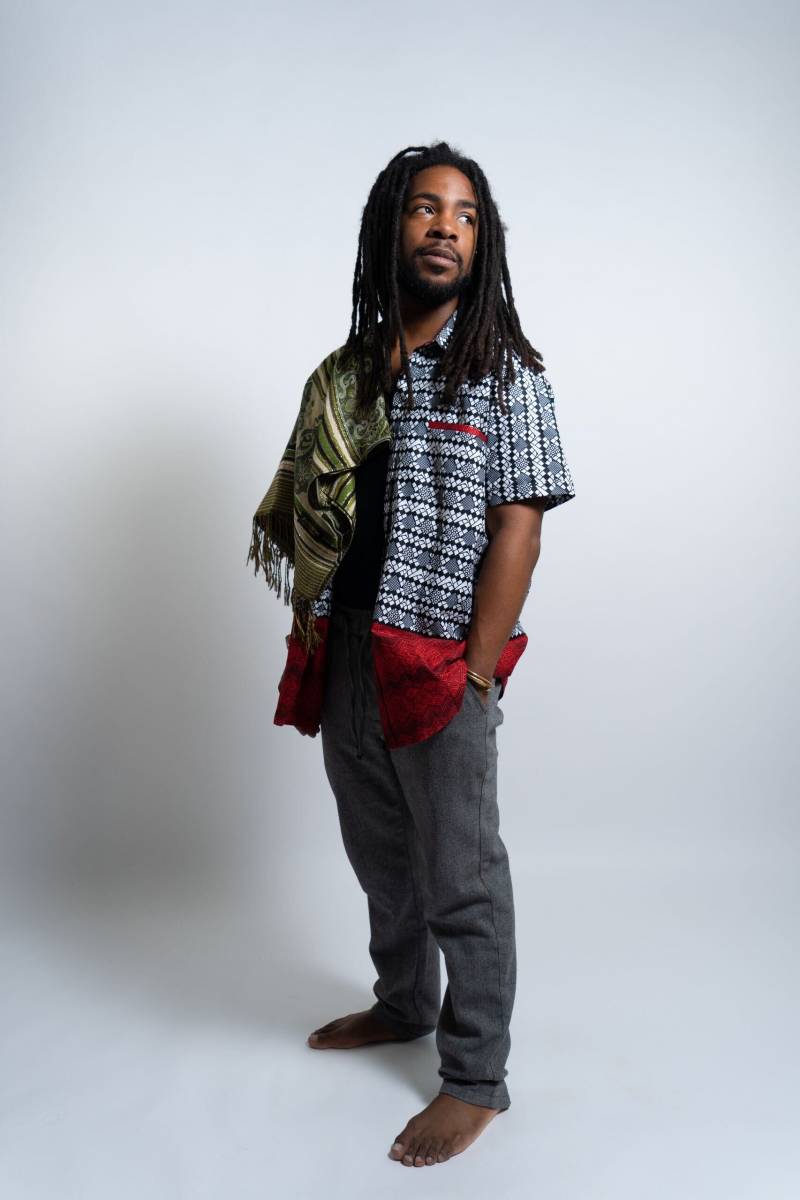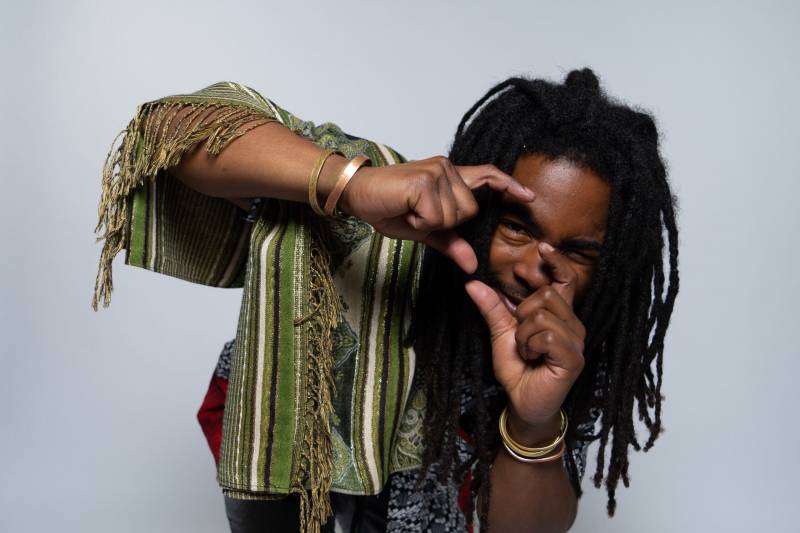“I’m doing a flip off the boat,” said Jarrel Phillips, breaking down last year’s performance at Remembering 1619, a play directed by Joanna Haigood of Zaccho Dance Theatre, which acknowledges the first shipment of enslaved Africans reaching Virginia 400 years ago.
“I’m one of the ones that decides, ‘I’m not having this, yo, I’m out,'” says Jarrel, summarizing his character in the play.
His onstage persona is much like Jarrel in real life: acrobatic, resilient and close to his roots. From the stage, Jarrel tells the story of Africans surviving in the Western hemisphere. In real life, Jarrel is part the story of how African Americans have survived on the West Coast of the United States.
His grandfather once ran a life insurance business in the heart of the Fillmore, on Fulton Street and Octavia Street; Jarrel and his family still use “the office,” as they call it, to this day.

Between that office, a few different studios and community centers around the city, Jarrel finds places to practice his work. He’s a multitalented artist who has held photography exhibitions at the San Francisco Public Library.
But our discussion focused on martial arts and modern dance and how he uses capoeira-based dance to tell the story of resilience in the African diaspora, while simultaneously living the latest chapter in the story.
A shorter version of this episode was first broadcast on August 28, 2019. Below is a lightly edited excerpt of my more recent conversation with Jarrel.
Jarrel: When Covid hit, I just decided I was going to sit down and sit still. Like, we’re always in this rush. And like Capoeira is always going to be there for me, I love capoeira, that’s not going anywhere. So one of my goals was to do a class for Black people. And I’ve been doing it only with my brother and his lady so far, because I want to set the tone, so when people come in there’s a family vibe. I have this idea of how do you respect someone else’s home if you don’t already respect your own? Right and you could tie that to local Black history, since you’re dealing with an art form that has to do with the African diaspora, Black diaspora, but maybe out in Brazil, which is Americas still, but also, to know your own, like exploring your own heritage a little bit.

Rightnowish is an arts and culture podcast produced at KQED. Listen to it wherever you get your podcasts or click the play button at the top of this page and subscribe to the show on NPR One, Spotify, Apple Podcasts, TuneIn, Stitcher or wherever you get your podcasts.


